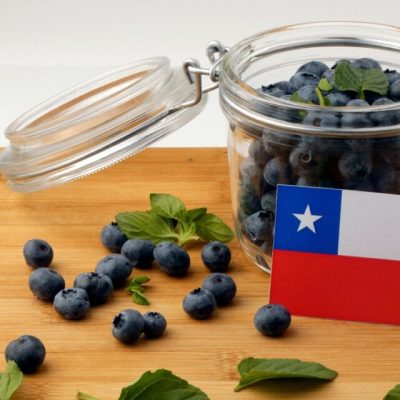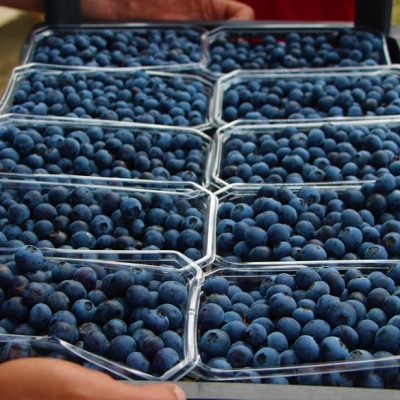Chile: Organic blueberries producers seeking business in Korea
The world’s blueberry production has increased significantly in recent times because of an increase in global consumption. Blueberries are associated with a healthy lifestyle because of their nutraceutical characteristics. As a result blueberry consumption has increased rapidly in emerging markets.
Thus, blueberries have achieved the same level of penetration they’ve had in the United States in Asian markets, such as China, Japan, Taiwan, and South Korea. A delegation of producers from Los Rios travelled in search of new business to South Korea, as part of Profo’s Organic Blueberry Exporting program, which is supported by Corfo through the Regional Productive Development Committee.
The Korean market
Chile was the first Latin American country to sign a free trade agreement with South Korea, which has allowed the country to export 11,720 Chilean products with zero tariffs into the Asian market, i.e. 96% of all the tariff lines, and 99.9% of Korean imports from Chile in 2013.
It’s worth noting that, according to statistics from ProChile, South Korea imports 69% of its blueberries from Chile. “We have a tariff preference that favors us over our direct competitor, which is the United States,” said Andres Hoffmann, the Manager of Profo.
Trip to Korea
As part of the project, Hoffmann travelled to Korea with three of the five companies that belong to Profo. The goal of the trip was to install capabilities to export directly, explore the market and expand business.
The trip lasted 6 days and the travellers met with local entrepreneurs and with various distributors and Korean companies. Their most important visit was to Seoul City Gas. “They invest in agriculture, like in a blueberry field in Chile. We negotiated with them to complete the commercial chain and had a good reception, as they accepted our offer. They will start receiving our organic fruits next season.”
Together, this group of entrepreneurs has 82 hectares and achieves an export volume of 500 tons of fruit per season. “This year we’ll perform a trial run. We expect to send three or four tons by air, thus marking the start of exports to this destination. Our biggest challenge, however, is not arriving to Korea, but the homologation of Korean standards. The certification we currently have is good to export to the United States and Europe, but not necessarily to South Korea,” Hoffmann said.
Visit to a Fair and plantations
Another important point on the tour was the visit to the Seoul Food Fair 2016, one of the largest food fairs in Asia and the Pacific. There, local entrepreneurs had the opportunity to see processing machinery to add value to their products; packaging options and different materials; processing lines; technology within the process lines; and make contacts with distributors and buyers of fresh fruit.
They also visited Korean greenhouses and the Lotte and I-mart retail stores.
Carlos Didier, a businessman that belongs to Profo added: “We believe we have the space to introduce our blueberries, because of their price and quality. According to our studies, our blueberries have 50% more antioxidants than other blueberries because of the weather conditions, soil and geographical location where they are cultivated. These are the advantages that we want to promote. Additionally, we produce the sweet varieties that are very popular in Korea. “






